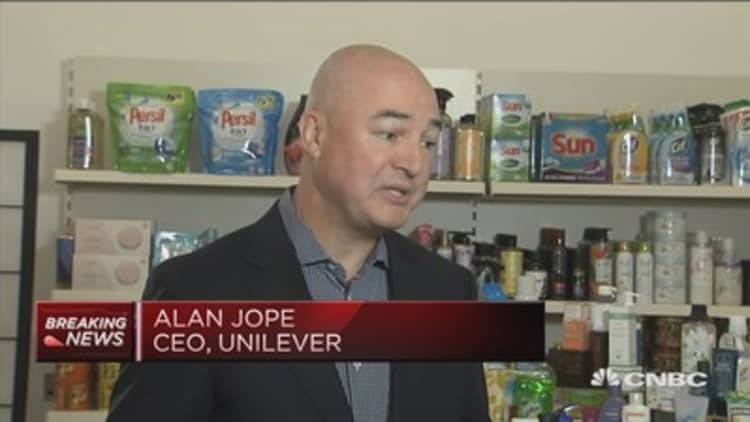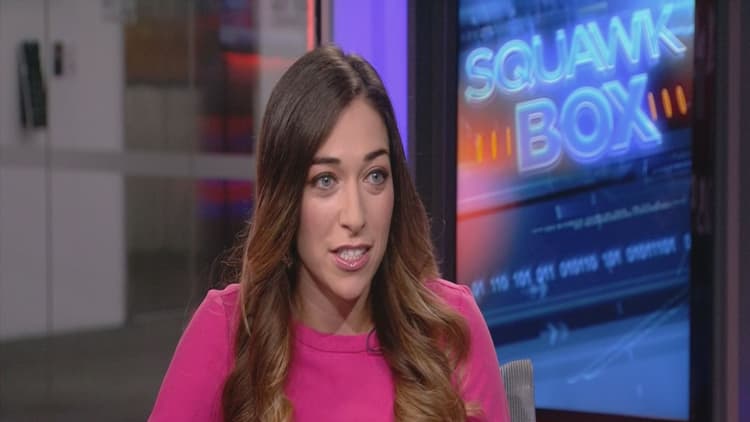
Unilever reported a 51 percent increase in annual net profit on Thursday, driven by a strong performance in India and other Asian markets.
The consumer goods firm reported a net profit of 9.8 billion euros ($11.21 billion) in 2018 compared to 6.5 billion euros in 2017.
However, Unilever pointed to a challenging market environment throughout 2018, in particular currency devaluations and rising commodity costs that put pressure on demand.
"We think these are a solid set of results because they balance nicely growth and operating margin improvement," Alan Jope, chief executive officer, told CNBC's Joumanna Bercetche on Thursday. "And it is a good quality of growth because it is 2/3 volume and 1/3 price, which is very much indicating that more people are buying our brands around the world."
Out of the company's three divisions, beauty and personal care contributed the most to Unilever's turnover in 2018.
In terms of regional distribution, Asia saw the highest turnover with 22.9 billion euros.
However, there's been a slight slowdown in Latin America. The region contributed with 7 billion euros in turnover last year, compared to 8.1 billion euros in 2017. This has also been the case in emerging markets, where turnover fell from 31.2 billion euros in 2017 to 29.7 billion euros in 2018.
"Looking forward we have indicated that we expect growth to be more in the 3 to 4 percent range, which is the lower half of our ongoing guidance and it basically reflects some of the volatility in emerging markets, notably in Latin America," Jope said.
"The real issue is volatility in emerging markets, when we see notable slowdowns in places like Argentina, Brazil and Southeast Asia then that's why we come in at the lower end of the growth range," he explained.
Shares fell above 2 percent shortly after the market open in Europe.
Brexit plans
In October last year, Unilever abandoned its plans of moving its headquarters from the U.K. to the Netherlands due to concerns over uncertainty surrounding Brexit. British shareholders blocked the move at the time. Jope told CNBC that this question is likely to come up again in the future.
"This is not a discussion about headquarters, this is a discussion about helping Unilever to have a simpler legal structure going forward," he said. "Our board will certainly be looking into that, but I would describe it as being in the important but not urgent box."



